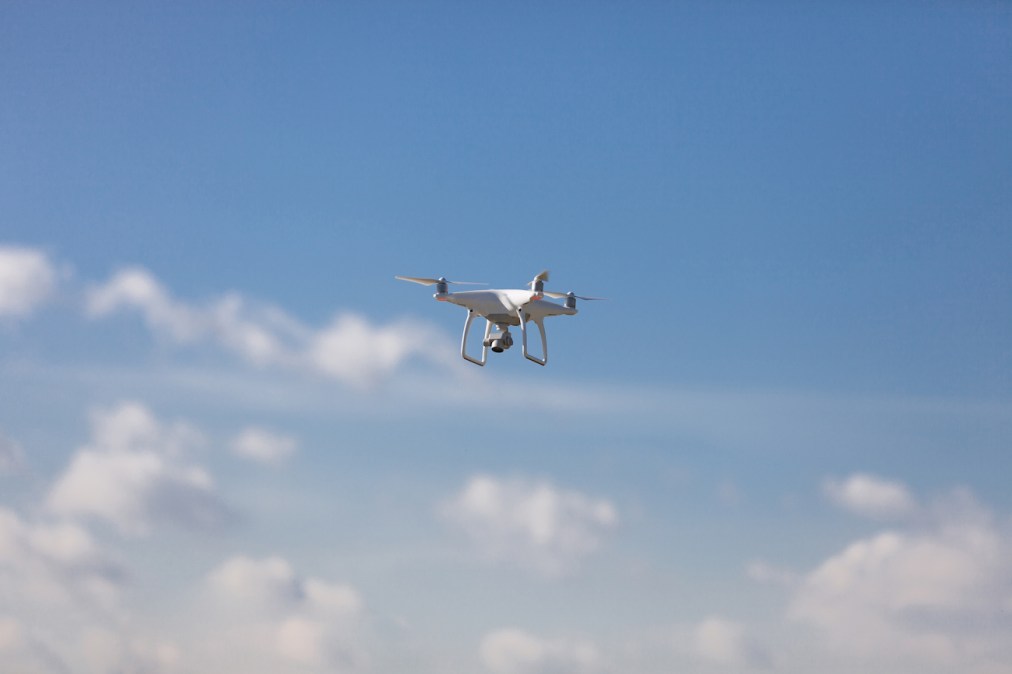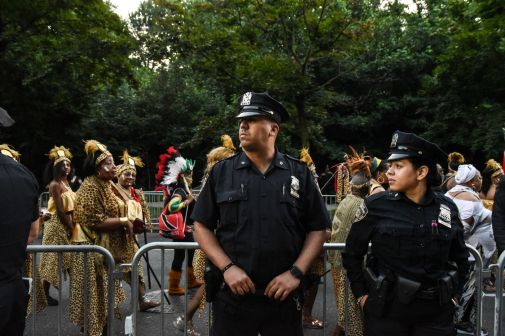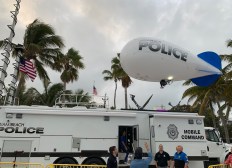Michigan junkyard case could change how government uses drones

The Michigan Supreme Court may soon issue a decision affecting how government uses drones to collect data about private property.
In the case Long Lake Township v. Todd Maxon, a property owner alleges that on multiple occasions over an eight-year period, the northern Michigan township hired a private drone operator to take photos of his private five-acre property without a warrant. He claims the township attempted to use those photos as evidence against him in a zoning dispute.
As more agencies expand their use of drones for a variety of tasks — from law enforcement to managing natural resources — the case could have repercussions in court rooms if it’s decided that imagery collected by a drone without a warrant can be used as evidence. Civil liberties groups such as the Electronic Frontier Foundation and the American Civil Liberties Unions have taken an interest in the case and both have filed amicus briefs in support of Maxon’s Fourth Amendment rights.
“[I]f the Township gets its way, it will not only profit from its privacy violations, but open the door to other local governments deploying cheap, pervasive, flying surveillance devices to surveil private property for the smallest of civil infractions,” the ACLU’s brief read.
Case facts
In 2008, Todd and Heather Maxon, the owners of the property, reached a settlement agreement with the township on a zoning dispute over the storage of junk cars on their property. The settlement included the township agreeing that no further civil zoning actions would be taken against them if they maintained the status quo of their junkyard — meaning no additional cars could be stored on the property.
But in the years following, neighbors reported to the township that the Maxons had expanded their junk yard. The opinion from the state’s Court of Appeals last year said that the neighbors’ allegations could not be confirmed due to buildings and trees obstructing the view of the property, so the township hired a private drone operator to take aerial photographs of the Maxons’ property four times: in 2010, 2016, 2017 and 2018.
The photos showed that the junkyard had grown, according to the court opinion. Long Lake Township filed a civil action against the Maxons in 2018 and attempted to enter the drone photographs as as evidence against them. The Maxons moved to suppress the drone photos on the basis of the Fourth Amendment, which protects against unlawful searches and seizures, but the trial court denied the motion, finding that the drone surveillance was not a search and therefore not protected. A Court of Appeals later reversed the trial court’s denial.
Last year, the Court of Appeals likewise held that “drone surveillance of this nature intrudes into people’s reasonable expectations of privacy, so such surveillance implicates the Fourth Amendment and is illegal without a warrant or a traditional exception to the warrant requirement.”
Supreme decision
The Michigan Supreme Court must decide whether this case is subject to the exclusionary rule, a provision normally used in criminal cases that prevents the government from using evidence gathered in violation of Constitutional protections. The U.S. Supreme Court has repeatedly rejected the application of the exclusionary rule in civil cases.
Hannah Zhao, a staff attorney for the Electronic Frontier Foundation, told StateScoop that oral arguments in the case concluded two weeks ago and that the Supreme Court may issue its decision within weeks or months. If the court decides that a warrant is not necessary — or that the exclusionary rule does not apply — it could have implications for governments conducting any type of surveillance.
“We’re always interested in issues having to do with government surveillance. And this is one of the issues that we were interested in, because the way the township argued this case, why they were allowed to do this without a warrant, is based on a couple cases from the U.S. Supreme Court back in the 80s, which technologically speaking was eons ago,” Zhao said.
Zhao said those old cases involved surveillance conducted by manned aircraft, such as helicopters, which are “fundamentally different” than cases involving drones since they’re silent and they can gather a large amount of data at a fraction of the cost.
“What used to be the natural limits put on the use of this area of surveillance no longer exist,” she said. “So for example, you will probably notice if a helicopter is flying or circling over your backyard. You may not notice if a drone is doing it because it is so small and it is so silent.”
Stakes
Across the country, government agencies are deploying drones to gather intelligence on everything from sharks to wildfires. Over Labor Day Weekend, New York City Mayor Eric Adams said the New York Police Department would send out drones to monitor large, backyard parties — a move that also met ire from privacy activists.
“We have seen a huge increase in the number of drones being used by governmental agencies. This includes both law enforcement, as well as other government agencies. The number of devices that have been bought by various government agencies has absolutely ballooned over the past decade,” Zhao said.
More recently, law enforcement agencies have begun launching “drones as first responders,” or DFR, programs, in which law enforcement officials send drones to the scenes of emergencies, often beyond the visual-line-of-sight of drone operators. Zhao said that she’s less concerned with those programs than the government “surreptitiously spying” on properties without a warrant — as was done in the Maxon case.
“Drones as first responder programs tend to have a very specific purpose — responding to emergency calls and things like that. But this was not that. This was targeted surveillance,” Zhao said. “Drones should not be patrolling neighborhoods, looking for evidence of crime and intentionally trolling around looking for that kind of thing, because there should be a probable cause determination before they target you with drone surveillance.”






